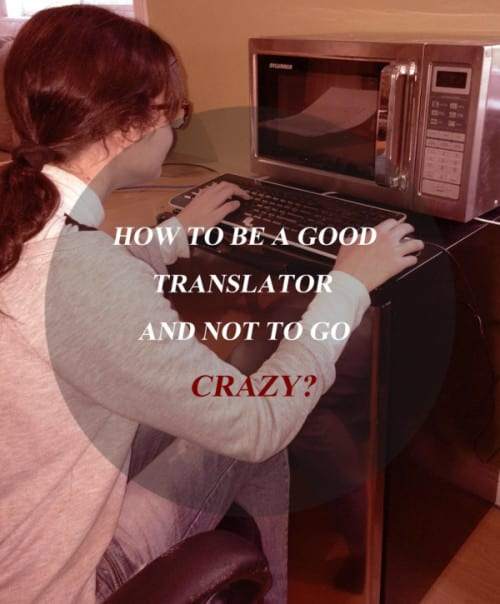Being a Good Translator Requires Working Hard. Here Are Some Tips that Will Make Your Work Easier
While being a translator seems easy, it is actually not as easy as it seems. You want to know why? Let’s forget for a second that translators have to deal with tons of projects. Let’s forget about the piles of documents written in a foreign language and the pressure to meet a strict deadline. This sounds quite stressful, doesn’t it? Nevertheless, let’s forget about it and talk about the translation process itself. When working, translators spend hours and hours in front of a computer using various translation tools, dictionaries, and other programs. Working on the computer may sound like the most relaxed job in the world, but it is quite the opposite.
According to Dr.David Agus, five of more hours of sedentary sitting is the health equivalent of smoking a pack of cigarettes… Constant sitting has long been known as a reason of back pain and blood-circulation issues, which can cause cardiovascular disease. Moreover, staring at a bright screen for hours can lead to headaches, blurred vision, and other vision disorders.
Some advices
Being a good translator is hard, mostly because of how long you sit in front of the screen of your computer. What can translators (and not only translators) do in order to reduce negative effects of working on the computer for so long? The first really good piece of advice is to adjust the colours of the monitor so that the background is a dark olive green and the text is a light yellow. This will help your eyes not to become sore as this colour combination is considered to be rather relaxing. Together with a big font size, this can help you avoid headache. One more ‘rule’ that is very effective is the 20/20/20 rule: every 20 minutes, focus on the object 20 feet (6 meters) away for 20 seconds. Your eyes are your everything, so take care of them!
Being a good translator also means using good tools
Don’t forget to use translation memory tools, especially when you have a lot of repetitive work (contracts, legal documents, manuals, etc.). Translation memory tools will help you save time and money. Besides, it is a good idea to use optical character recognition tools that convert images of typewritten or printed text into machine-encoded text. You won’t have to create lots of tables and work with numbers manually – optical character recognition will do this for you, and your eyes will have a chance to relax. Also, don’t forget to walk and move around. If you don’t have a dog yet, time to get yourself a new friend!
We hope that all translators (and not only translators!!!) will find solutions for this problem, and constant sitting in front of the computer will be more relaxing and less harmful. In case you need professional translators, LingoStar is here for you! Call us today at 604-629-8420 or send us an email at info@lingo-star.com for more information.

















